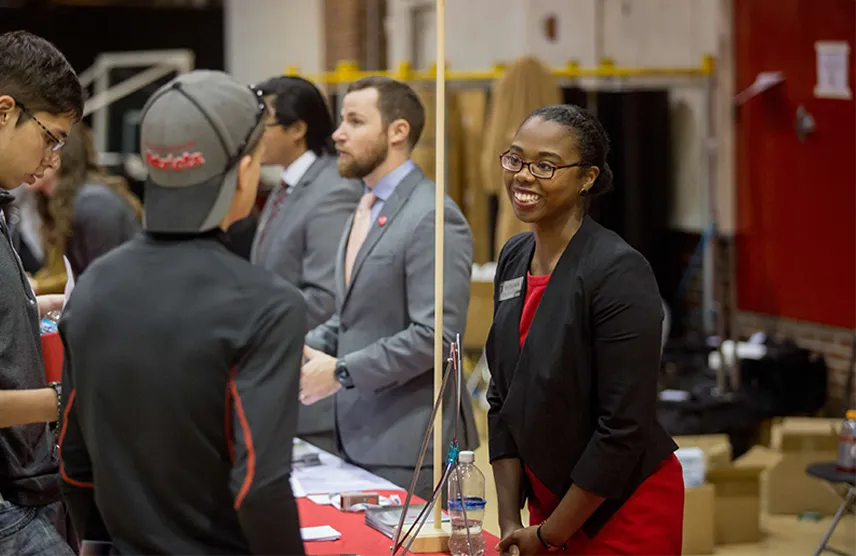College fairs can be both exciting and overwhelming. For high school sophomores, juniors, and seniors, these events are your chance to explore potential colleges and universities, gather information, and begin shaping your higher education journey. Whether you’re just starting your college search or you’re deep into the process, knowing how to make the most out of a college fair can impact your future decisions. This blog will walk you through what to expect and how to navigate a college fair like a pro.
Purpose of a College Fair.
College fairs are an excellent opportunity for you to learn what colleges offer regarding career fields, student services, scholarships, and organizations to get involved in. You’ll be able to interact with various admissions representatives who can answer your questions about their institution. College fairs usually have the following types of entities in attendance:
- Four-year public and private colleges/universities
- Two-year community colleges
- Trade schools, Technical colleges, Vocational schools
- Various branches of the military
Create a barcode.
Before the fair, you will need to register for a barcode! Create your free account and then either print your barcode or save it to your smartphone. Take the barcode with you to the college fair so college reps can scan it to save your demographic information, so you won’t waste time completing info cards for each college that interests you.
Make a game plan.
Think about what you’re looking for in a college. Make a list of the colleges you want to visit at the fair and consider factors such as location, academic programs that match your skills and interests, school size, social climate, career prep, and the cost of attendance. If you have extra time, be open to visiting colleges that aren’t on your list. You never know what gem might be out there that you hadn’t considered before!
Prepare a list of questions.
Create a list of questions to ask the reps from each college you’re interested in. College is an investment, so you have every right to ask as many questions as you need. If you can’t come up with any questions, click here for some ideas to get you thinking. Take notes of your conversations with the college reps and grab their business card in case you have more questions later.
The day of the event:
Arrive early so you have plenty of time to visit with all the colleges on your list. Stop by the EducationQuest table to pick up some of our free college planning materials and abag to hold all the “goodies” you collect during the fair. We’re always happy to visit with you about your college journey! You might also consider stopping by the military tables to discuss ways to offset your college costs or to pursue a military career.
The next steps:
When you get home, review all your notes and brochures that you collected from the various colleges. List the pros and cons of each college and highlight the colleges that stood out to you. This is an excellent way to narrow down your college choices to a more manageable list.
Schedule campus visits to your top 3-4 colleges so you can get a feel for the campus and find the right fit for YOU! Stay in contact with college reps after the fair so you know about any upcoming events they host for potential students. They can also keep you informed of deadlines for scholarships, admissions, and your financial aid application.
College fairs allow you to explore various options and discover what’s out there. You can make the most of this golden opportunity by preparing in advance, engaging effectively with college reps, and following up after the event. Remember, the goal is to gather information, explore your options, and find the best fit for your academic and personal goals.
By Jacquie Butler
